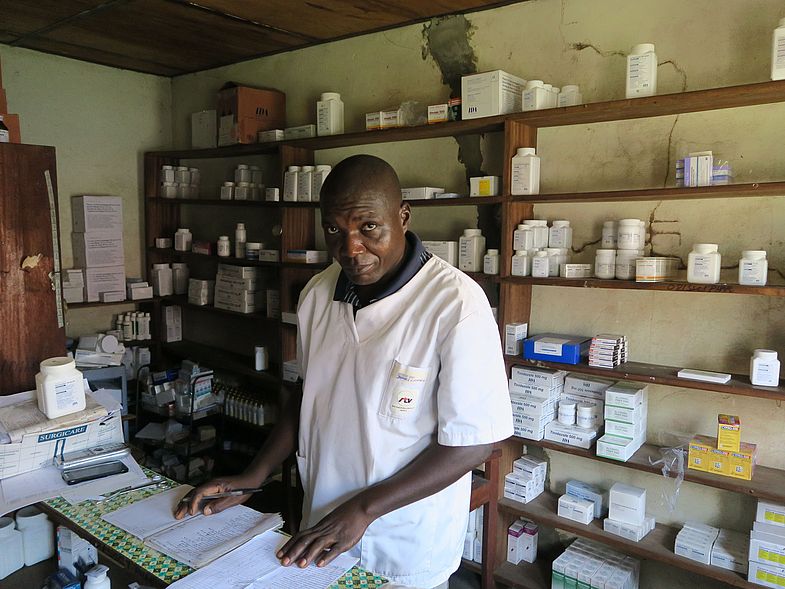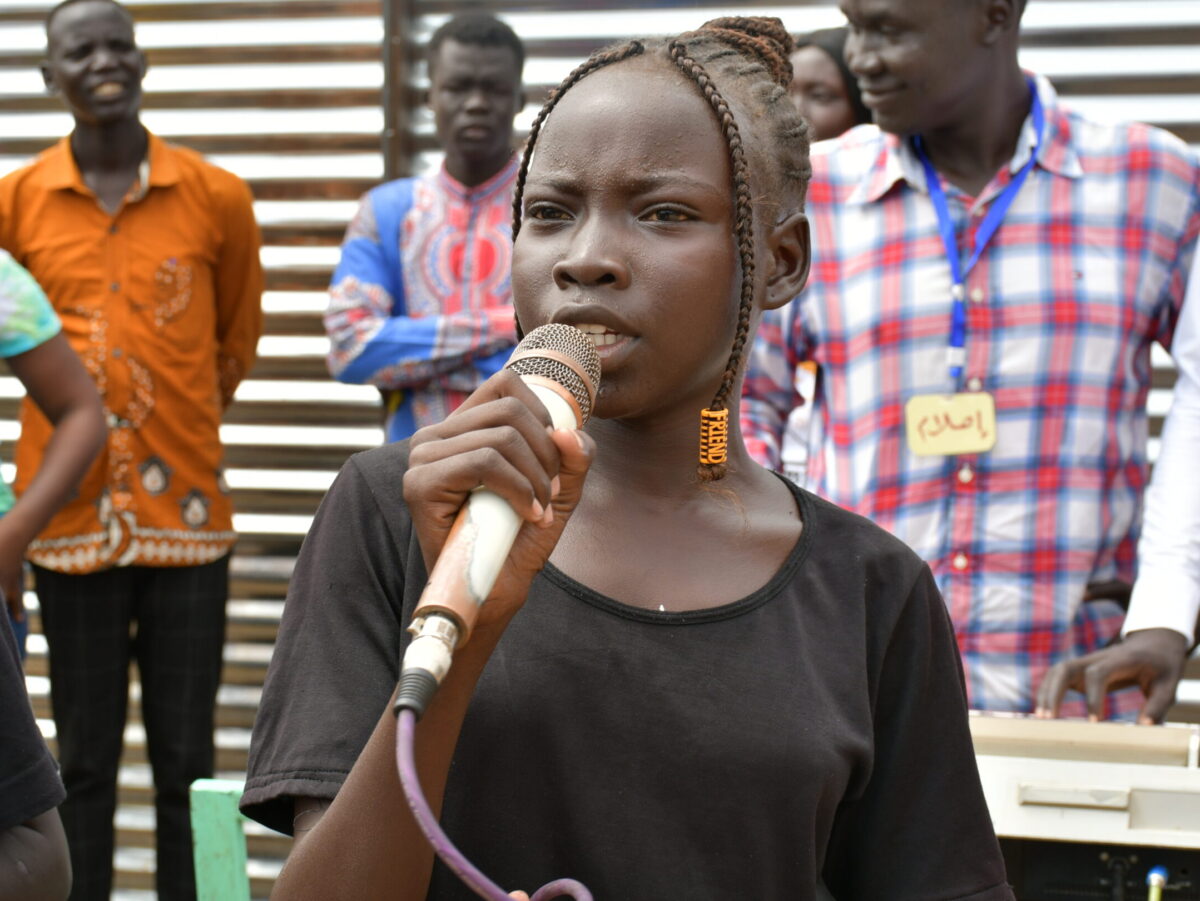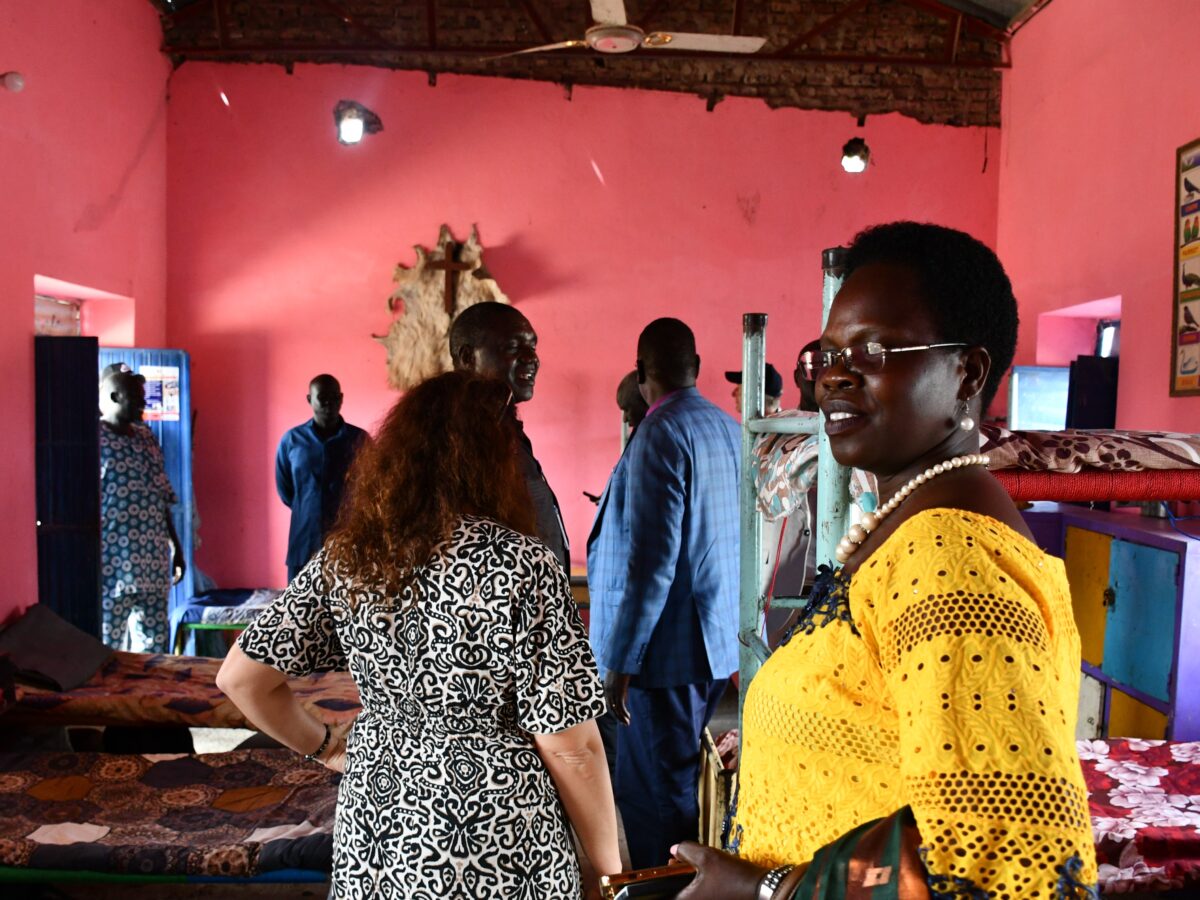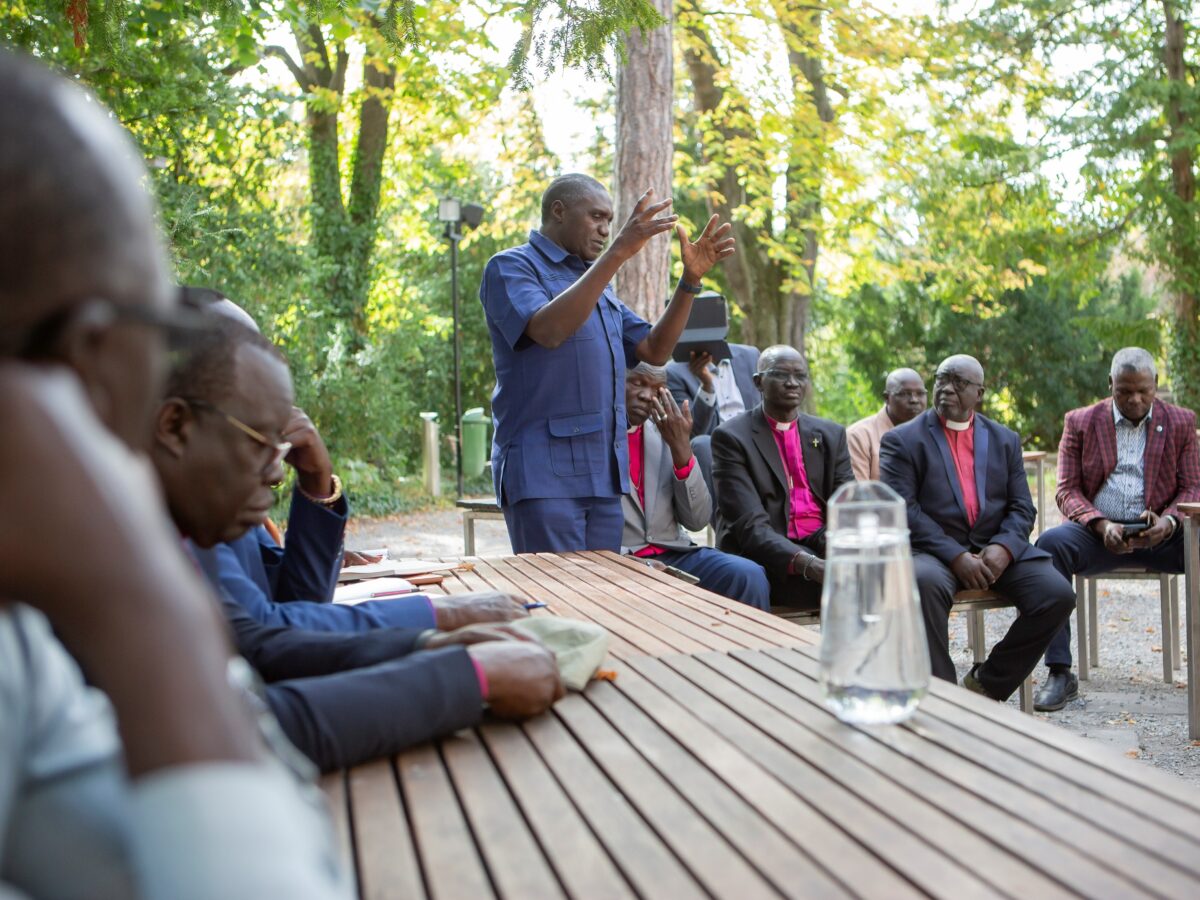Every day after working in the fields, Rachel felt severe abdominal pain. At the beginning, she could pay little attention to her complaints. This is because the 25-year-old has a hard life: she works as a teacher at a state school. Since wages are paid extremely irregularly or not at all, the young woman has to grow vegetables and grain for self-sufficiency in addition to teaching - in fields far away that she has to reach on foot every day. Household chores such as cooking and cleaning, as well as taking care of her five-year-old child, also fall to her as a woman. So Rachel paid little attention to her health complaints at the beginning.
Long distances and high costs
And although the pain in her abdomen was getting stronger, she hesitated to see a doctor. She lives in a small village, the nearest hospital is far away and can only be reached on foot, and the treatment costs are high. In her precarious situation, a simple check-up visit meant a high expenditure of time and money. Finally, she went to Wamba Luadi Hospital, where she was diagnosed with advanced appendicitis. She was operated on and was able to go home two days later. The Wamba Luadi Hospital is part of the health service of the "Communauté Evangélique du Kwango" (CEK). With the support of Mission 21, the CEK's health service successfully provides minimal basic care to the population. Rachel's illness story had a happy ending. But what sounds like a routine operation could have ended fatally. In the rural province of Kwango, people die time and again even though their illnesses could have been treated.
Lack of government support
The four biggest disease problems in the Kwango are malaria, diarrhea, respiratory infections and the consequences of malnutrition, all diseases that would often be easy to treat. Nevertheless, these four diseases cause most of the deaths in the region, because there is often a lack of medication and many villages are remote and far away from the nearest hospitals. These are often reached too late, as the road network is catastrophic. There are hardly any cars, the roads are in a miserable condition and public transport does not exist. The reason for the poor infrastructure in Kwango province is government neglect. The central government in Kinshasa cares little about the infrastructure and basic needs of the population in the southwestern, rural province. Yet reliable health care would be particularly important, because the health situation of the population in the DR Congo is one of the worst in the world. Like Rachel, most of the inhabitants of the remote Kwango region are destitute self-supporters. In order to reach as many people as possible, CEK pursues a decentralized approach: with the support of Mission 21, it now operates a total of more than 20 outpatient clinics, health centers and hospitals spread throughout the region.
Church commitment
Where governments fail to meet their responsibilities to the population, churches often step into the breach. In sub-Saharan Africa, for example, churches are estimated to be responsible for up to 70 percent of all health care facilities. This has a long tradition: Even the first mission stations often had health services attached to them. Mission 21 and its partner church CEK have also been working since the 1950s to ensure that all people have access to health care - regardless of their social status, gender or origin.
A new "Salle de Pharmacie
An important focus of the CEK health project is the supply of medicines: Medical supplies such as distilled water, bandages and medicines for the most common diseases are part of the most important equipment of a health facility. For this reason, the CEK health team is currently building a so-called "Salle de Pharmacie" in the Kwango. Here, chemical medicines such as tablets for various treatment purposes will also be produced. It is expected that the "Salle de Pharmacie" will be ready for operation in the course of 2020. Producing more medicines directly in the region will make many things easier for the project, close supply gaps and contain costs. "We are very happy about this progress," says Hugo Mambote, "because medicines save lives.
Excerpts from the text by Mara Wirthlin in the news of December 2019.






